
views
Stopping Yourself from Texting Too Much

Take a break from your cellphone and take away its power. Take a day and travel somewhere where a cell phone connection isn't readily available so texting might be a little hard. It's a great way to detox from your obsessive texting habits and to begin anew cold turkey. Go on a local hike on the outskirts of your city, either alone or with a friend. A signal will be spotty so you'll have time to connect with yourself and prevent yourself from being so attached to your phone and checking who's contacting you or who hasn't every five minutes. For a less dramatic route to a text detoxing, take the power from your cell by turning it off or placing it on airplane mode for 24 hours. This will take you off the map without traveling off the map.

Get physical. There might be times where you find yourself looking at your phone or wanting to send another text to a person who hasn't sent one back to you yet. Take your mind off it completely by releasing your emotions through exercise that will release the endorphins feeding your text stress. Engage in one of your favorite sports, but take things a step further by playing an active role in the game versus watching it on TV. Play a round of tennis or a game of basketball. Even if you're a lousy player, you will feel so much better with this distraction. Take up a kickboxing class, a spin class, or a barre class. Not only will the benefit of endorphins being released still be there, but it will be joined by a sense of confidence for taking up a new skill.

Jumpstart a creative project. Take your hands off of your phone and get busy using them to create something. Switch your focus from who is or isn't texting you and become mentally preoccupied with a Pinterest project that hadn't seen the light of day. Work on DIY projects around the house to add one of a kind decor pieces to your space. Take the time to pick up new skills on an instrument you've always been interested in playing.

Meet with your friends. Sure, texting is a way to instantly reconnect with others, but it will never replace interacting in real time. Step away from technology and spend a day out with friends. Strengthen relationships with in-person communication while shopping, going out for sushi, going to the movies, or going dancing at a club. Make it a rule that no one is allowed to use their phones while you're hanging out. There's strength in numbers and you'll find it easier to get your mind off texting if everyone is too busy having a good time.
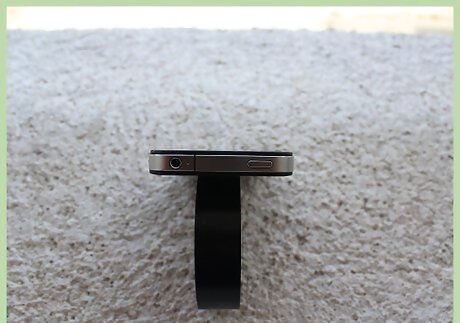
Put the phone down. Using your phone at all times is not a necessity to life and treating your phone like it is one is the quickest way to annoy the people you're around. Practice self restraint with when and how you use your phone to text. Texting people while you're in a social setting like class, a meeting, work, at lunch, or at dinner, is impolite to the company you're with at the time. Limit reading or responding to text messages to emergency situations or a family member calling. Texting should be limited in environments where it'd be a nuisance to you or people around you too, i.e. do not text while at the movies.
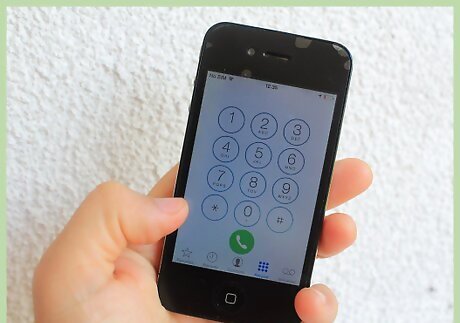
Do not text while you drive. Composing, reading, and/or sending a message while you drive should not be an aspect of driving. An alarming number of accidents happen every day because people think they can balance using their cell phones while they drive. It's a danger to you and anyone on the road. The great thing about a text is that its very nature means that it isn't an urgent form of communication, so it can wait. Do not use your cell phone while you're at a red light or traffic stop either. It takes your focus off of the road and can be annoying to other drivers who have places they want to go. Utilize blue tooth and hands-off options if interacting with your cell phone is a must while you drive. If you don't have those things, cut it off completely or put it in a compartment in your car to avoid messing with it while you drive.
Becoming a Better Texter
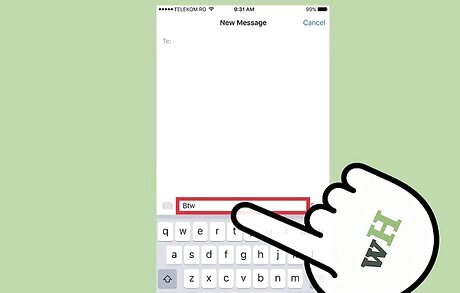
Keep your abbreviations to a minimum. Abbreviations are a great way to shorthand words to type your texts out faster. However, too many abbreviations can make messages borderline unreadable and the person receiving the text message may not understand you. Some abbreviations (btw, fb, u, ur) are acceptable. Try to text longhand with only a couple of abbreviations in the mix. An example of this is: “Btw, what u r up to today?” The ratio of longhand words to abbreviations should always be much greater. Refrain from using too many abbreviations in your text messages or a text could look like this: "nm jc @ ma hous what u wan do 2dai." If a person has to concentrate to decipher a message, consider making revisions to your abbreviation usage. Do not abbreviate text messages sent to people you know in a professional sense. It's the quickest way to look unprofessional and immature.
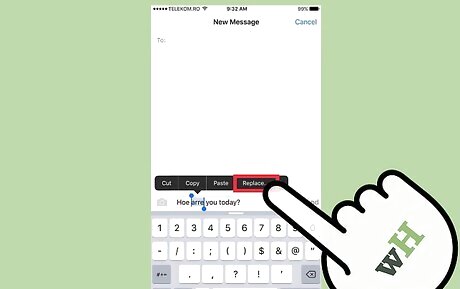
Proofread your text before you hit “send”. Texting is about quickness and efficiency, but not to the point of error. Even a small error can be a jarring read to the person receiving the text. Use autocorrect to help you finish sentences faster with proper spelling. Be sure to always proofread everything you text.
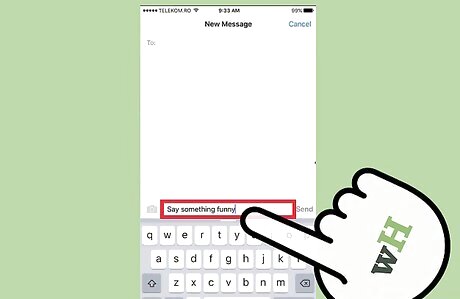
Have something to say if you start a conversation. If you ask "what's up" and they say "not much, you?," tell them something funny that happened that day. Do not follow things up with “nothing” as an answer or a one-word response. The recipient will wonder why you texted them. Don't text someone for the sake of texting them. People can tell when you're using them to bide your time over versus being genuinely interested in them and what they have going on. Be detailed and invested in your messages. Text with sincerity or not at all. If you notice that the person you're texting is giving you one-word responses back, take it as a sign that they either don't have anything to talk about or they don't feel like talking. Text them another time.
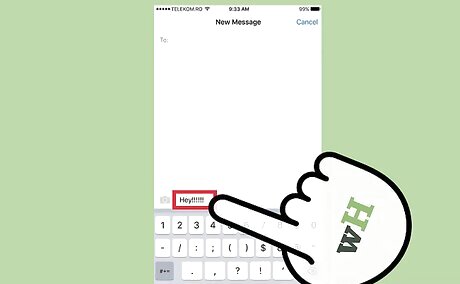
Use punctuation, but do not over-use punctuation. A question mark after a question or occasional exclamation mark is good. Many question marks are not. Do not use five question marks at the end of every (or any) sentence.
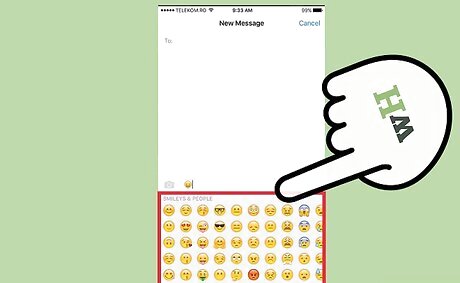
Ration how often you use emojis. Sometimes people think it's cute to add ten winky faces or ten kissing faces after a brief text or in exchange for actual words; other people find it annoying. If you must, use an emoji for emphasis and use just one or two at any given time.
Practicing Proper Text Etiquette
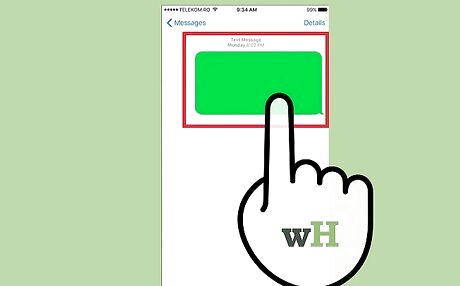
Maintain an even text ratio. A text ratio should always be even, meaning for every one text you receive, send one text back. If two were sent to you, you can send two back. However, never send more texts than you received and vice versa. It's the quickest way to seem desperate or needy.
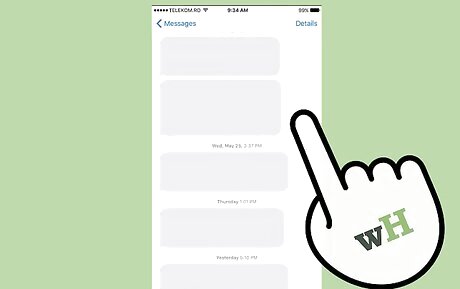
Steer clear of overtexting. There's nothing worse than opening your phone to see a plethora of text messages and all of them are longer than a paragraph. Practice self awareness if you notice your texts are a little long, edit them, and stop yourself from annoying people with this texting tendency. Do not text someone you know multiple times everyday to ask about their life, unless you are really good friends. If you ask them "what's up?" or "what are you up to?" three times or more in a day, you're doing something wrong. Texting is not a replacement for in person or phone conversations, so if there are a lot of details, save it for one of those two outlets versus a text. Important details can be lost that way.
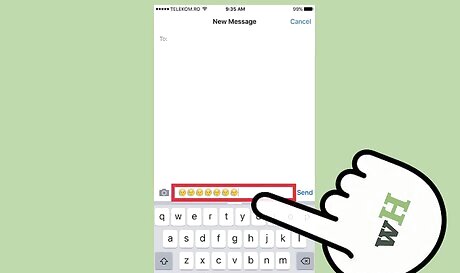
Avoid texting emotionally charged interactions. Never text someone while they are angry or upset or while you are angry or upset. Tone can be misunderstood which can prolong confrontation and negative emotions. Diffuse situations quicker by saving the conversation for later or picking up the phone to continue it.
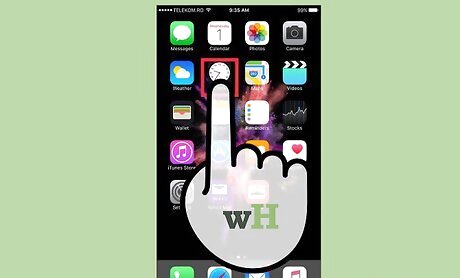
Be mindful of the time. Receiving a text from someone before noon is a little annoying, especially on a weekend when you're trying to get some extra sleep in. It can be disruptive. Treat texting as you would a phone call to a house phone. You wouldn't call someone's house before noon or after 10:30 pm, so use that as a rule of thumb of when to send text messages. If you are friends who have known each other for a while, there might be some leeway with these guidelines. Use discretion. On the flipside, texting someone after midnight can be an alert that you are needy, wasted, or trying to hook up – signs you might not want to put out there.
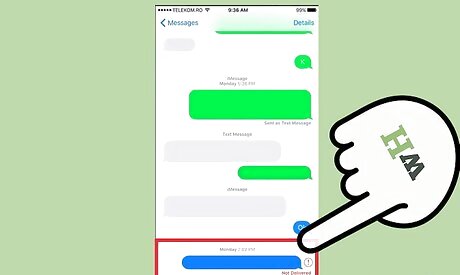
Respond to texts you receive. It's the right thing to do and the polite thing to do. Sometimes not receiving a text response can be just as annoying as receiving far too many. Do your best to respond appropriately and timely to messages sent to you.
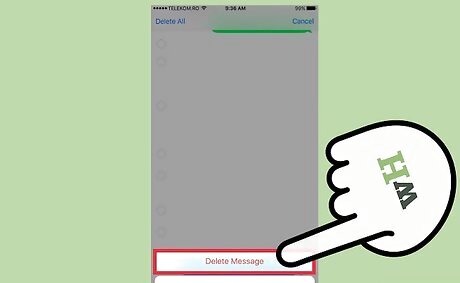
Have respect for others' texting boundaries. If somebody does not respond, they are either busy or don't want to talk to you. Whichever the case may be, respect their decision of not wanting to talk to you. As you would in every day face to face interactions, allow the person you're texting to show you what your next move is. Once you've sent a message, don't text that person again until they text you back. Also avoid any annoying behaviors that undermine the other person's attempt to distance themselves from your texts. Don't text them again with a different comment or question, don't text them a question mark a minute later, and don't resend the exact same message an hour later (they definitely received your message). If your friend tells you that she/he will "text u later" and after the whole day there is no reply from your friend, avoid texting a "good night" in effort to remind them that you were waiting for their text. It's a passive aggressive behavior.



















Comments
0 comment